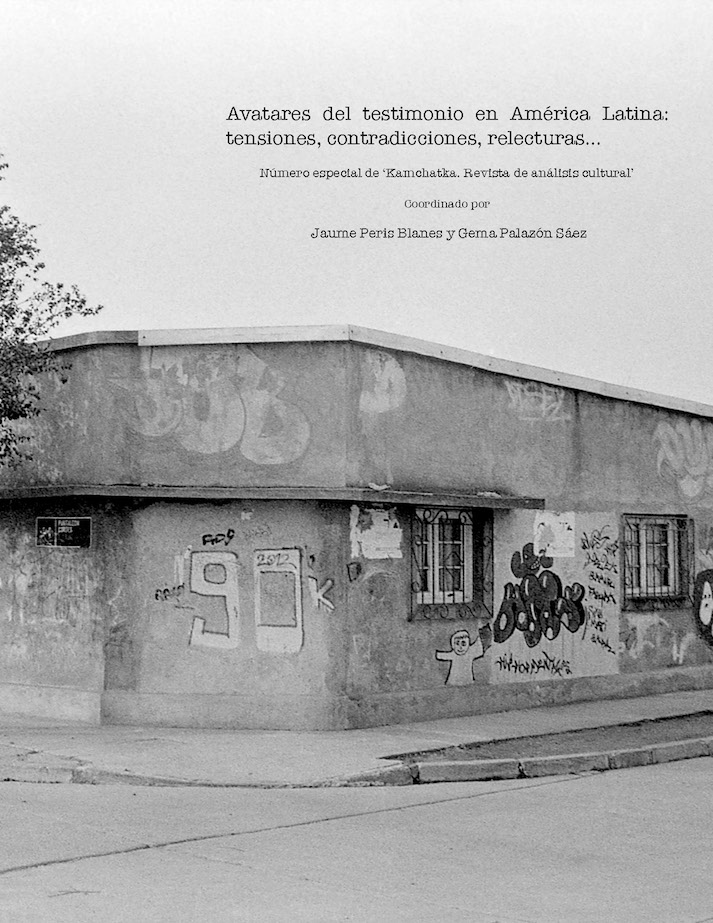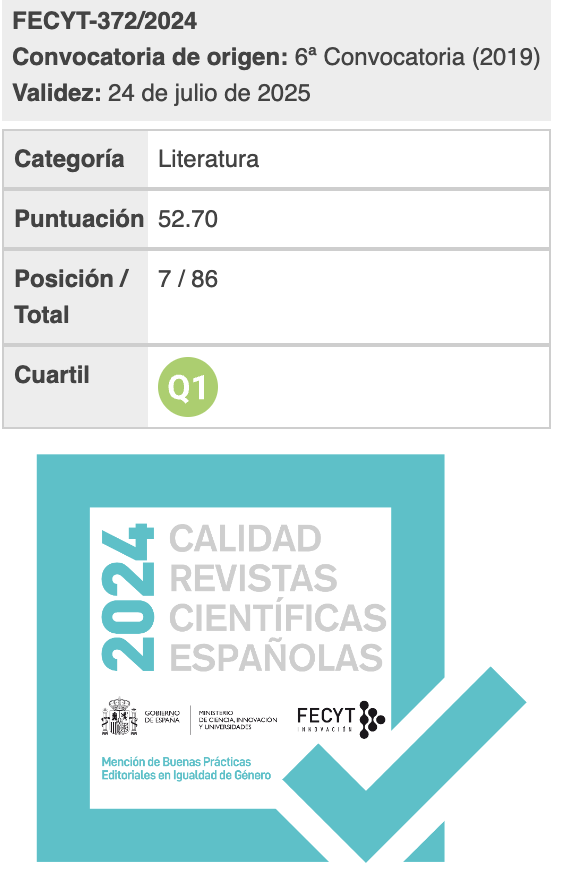El subalterno excepcional. Testimonio latinoamericano y representación
DOI:
https://doi.org/10.7203/KAM.6.6937Palabras clave:
testimonio, literatura testimonial, América Latina, memoria, subalternidad Resumen
Resumen
Resumen:En este artículo se discute el carácter representacional de los sujetos subalternos que protagonizan algunos de los textos clave del testimonio latinoamericano. Se afirma, por el contrario, que la mayoría de ellos, como Juan Pérez Jolote, Jesús Sánchez, Esteban Montejo, Jesusa Palancares o Rigoberta Menchú, constituyen sujetos excepcionales en sus comunidades subalternas. Se pretende, con esa investigación, complejizar el debate sobre la posible representación del subalterno en la literatura testimonial latinoamericana.
Palabras clave: Testimonio, Subalternidad.
Abstract:This article discuses the representativity of subaltern subjects who are the main characters in some of the most important testimonios in contemporary Latin America. These main characters (such as Juan Pérez Jolote, Jesús Sánchez, Esteban Montejo, Jesusa Palancares or Rigoberta Menchú) have been selected because of their exceptional characteristics, rather than because of their being typical members of their community constituyen s u j e t o s e x c e p c i o n a l e s e n s u s c o m u n i d a d e s subalternas.
Key words: Testimonio, Subalternity.
 Descargas
Descargas
 Citas
Citas
Aceituno, Luis (2001). “Arturo Taracena Breaks His Silence”. The Rigoberta Menchú Controversy, (Arturo Arias, ed.). Minneapolis: University of Minnesota Press:82-94. Barnet, Miguel (1983).La fuente viva. La Habana:Editorial Letras Cubanas. Barnet,Miguel (1993).Biografía de un cimarrón. La Habana: Editorial Letras Cubanas. Beverley, John (1999). Subalternity and Representation: Arguments in Cultural Theory. London: Duke University Press. Beverley, John (2001). “What Happens When the Subaltern Speaks: Rigoberta Menchú,Multiculturalism, and the Presumption of Equal Worth”. The Rigoberta Menchú Controversy, ed. Arturo Arias, Minnespolis: University of Minnesota Press, 219-36. Bostelmann, Enrique (1970). América: Un viaje a través de la injusticia. Mexico DF: Siglo XXI Editores. Burgos Eizabeth (1984). Me llamo Rigoberta Menchú y así me nació la conciencia. La habana: Casa de las Américas. Gugelberger, Greg (ed.) (1996).The Real Thing: Testimonial Discourse and Latin America. Londres: Duke University Press. Lewis,Oscar (1962).Five Families: Mexican Case Study in the Culture of Poverty. New York:Science Editions. INC. Lewis,Oscar (1963). The Children of Sánchez: Autobiography of a Mexican Family, London: Secker & Warburg. Moore-Gilbert, B. (2000). “Spivak and Bhabha”.A Companion to Postcolonial Studies.(Schwardz y Ray, eds.). Oxford: Blackwell:451-66. Poniatowska,Elena (1985). “Testimonios de una escritora: Elena Poniatowska en micrófono”. La sartén por el mango:encuentro de escritoras latinoamericanas.(Patricia Elena Gonzáles y Elinana Ortega). Río Piedras: Ediciones Huracán: 155-62. Poniatowska,Elena (1994). Luz y luna, las lunitas. México D.F.: Ediciones Era. Poniatowska,Elena (2000). Hasta no verte Jesús mío. México D.F.: Ediciones Era. Pozas, Ricardo. (1968). Juan Pérez Jolote: biografía de un Tzotil. México D.F.: Fondo de Cultura Económica. Margaret Randall, “¿Qué es y cómo se hace un testimonio?”. Revista de Crítica Literaria Latinoamericana 18.36 (1992): 23-47. Rigdon,S. (1988).The Cultural Façade. Chicago: University of Illinois Press. Stoll, David (1999). Rigoberta Menchú and the Story of All Poor Guatemalans. Boulder: Westview Press. Sklodowska, Elzbieta (1991). Testimonio hispanoamericano:historia, teoría, poética. París:Peter Lang Publishing. Spivak, Gayatri (1988). “Can the Subaltern Speak?”. Marxism and the Interpretation of Culture. (Cary Nelson and Lawrence Grossberg, eds.) Urbana: Illini Books: 271-313.
Descargas
Publicado
Cómo citar
-
Resumen1383
-
Artículo807
Número
Sección
Licencia
Los textos publicados en esta revista están –si no se indica lo contrario– bajo una licencia Reconocimiento-NoComercial 4.0 de Creative Commons. Puede copiarlos, distribuirlos y comunicarlos públicamente siempre que cite su autor y el nombre de esta publicación, Kamchatka. Revista de análisis cultural y no los utilice para fines comerciales. La licencia completa se puede consultar en Creative Commons.
Aquellos autores/as que tengan publicaciones con esta revista, aceptan los términos siguientes:
- Los autores/as conservarán sus derechos de autor y garantizarán a la revista el derecho de primera publicación de su obra, el cuál estará simultáneamente sujeto a la Licencia de reconocimiento no comercial de Creative Commons que permite a terceros compartir la obra siempre que se indique su autor y su primera publicación esta revista.
- Los autores/as podrán adoptar otros acuerdos de licencia no exclusiva de distribución de la versión de la obra publicada (p. ej.: depositarla en un archivo telemático institucional o publicarla en un volumen monográfico) siempre que se indique la publicación inicial en esta revista.
- Se permite y recomienda a los autores/as difundir su obra a través de Internet (p. ej.: en archivos telemáticos institucionales o en su página web) antes y durante el proceso de envío, lo cual puede producir intercambios interesantes y aumentar las citas de la obra publicada.





